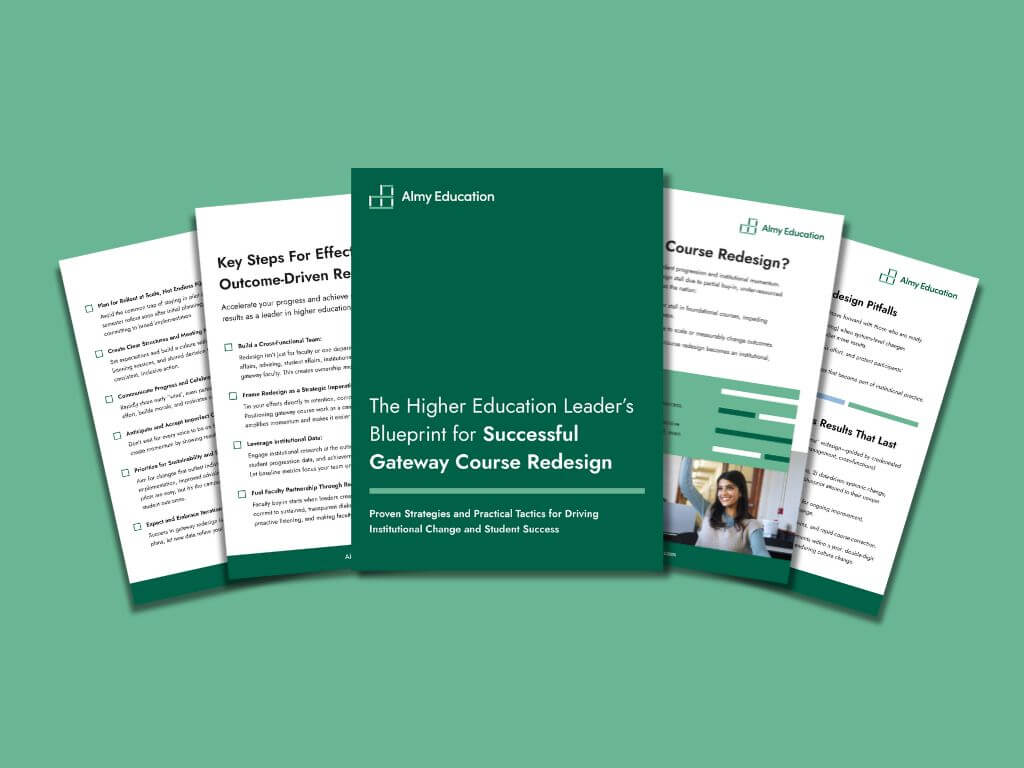Resources
Explore Expert Resources That Drive Institutional Success and Impact at Scale
Explore our collection of thought leadership, proven methodologies, and practical tools to help your institution achieve measurable success and drive student-centered outcomes.


Gateway Success Starts Here
Almy Education is the only gateway course consultancy that combines proven methodology with hands-on 'done with you' implementation support, led by current and former faculty who understand both systemic change management and classroom realities.
Get Started






.jpg)







